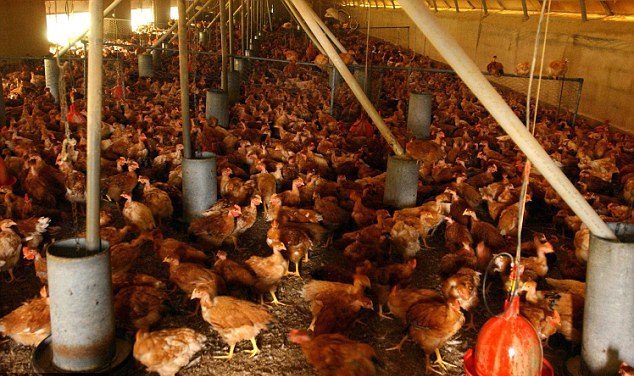Kenya’s appetite for chicken meat and eggs is always high throughout the year; business opportunities are thus evergreen. Whether you want to venture into broiler, layers or indigenous chicken production, the market is huge for both small and large scale farmers.
In addition, the production cycle is quite short hence quick returns to investments. It only takes three weeks for an egg to hatch into a chick and four to six months for a hen to mature and start laying eggs; this can go on for two years; a good breed like Californian white will lay up to 325 eggs annually. Broilers take as little as six weeks to reach market weight under good management.
The rearing system where many birds are kept together acts like a match stick whose one strike can put the whole forest on fire. A single infected bird can easily create an epidemic on your farm and even spread across the neighborhood. The presence of disease in layers is indicated by sudden drop in egg production, and close monitoring of this parameter can help maintain a healthy flock. One way of achieving a healthy poultry flock is by adherence to bio-security measures.
Bio-security measures refer to all the precautions taken by a farmer to break the cycle of disease development and spread by minimising chances of disease causing organisms entry into your farm and subsequently your poultry stock through strict quarantine and destruction of disease causing micro-organisms through proper hygiene processes. Bio-security is a preventive measure and is always economical relative to medical treatment. Hatcheries are common places from where poultry diseases are picked thus one must obtain birds from a good clean hatchery.
Some poultry diseases are transmitted from parent to offspring via the egg or sperm either inside the egg or on the shell at the hatcheries hence the importance of getting the history of birds initially purchased from such sources from fellow farms, veterinary doctors and livestock production experts.
The introduction of older birds posses even a greater risk as they maybe already infected or are carriers and can easily spread the disease to young stock. Even in carrier state, the relocation stress can lower the immunity of the bird and create ample time for pathogens to multiple can cause disease symptoms.
A farmer can, therefore, achieve bio-security by keeping birds within your compound for free-range system or confinement in a deep litter or battery system provides protection from disease causing micro-organisms and predators some which spread diseases. Nonetheless, note that overstocking in confinement stresses birds and increases the risk of infectious diseases development and spread.
Deep litter or battery system of poultry production, the unit needs to be securely located to avoid easy access. Avoid unnecessary visitors to the farm because someone who has moved from an infected farm will easily carry the disease causing micro-organisms on their feet, hands and even cloths. To cut this cycle of infection; disinfectant foot baths at your main gate and at the poultry house is always recommended.
Visitors entering your poultry unit need to change street footwear and clothes and wear special disinfected cloths. But the rule of the thumb is to control entry of visitors and vehicles into your poultry unit. The poultry unit also needs to be protected from wild birds and vermin which are carriers of diseases causing micro-organisms. Where it is applicable; it is recommended that poultry farms should be at least 5km apart and a two metres high perimetre wire netting fence be erected around the farm to protect against wild birds entry.










